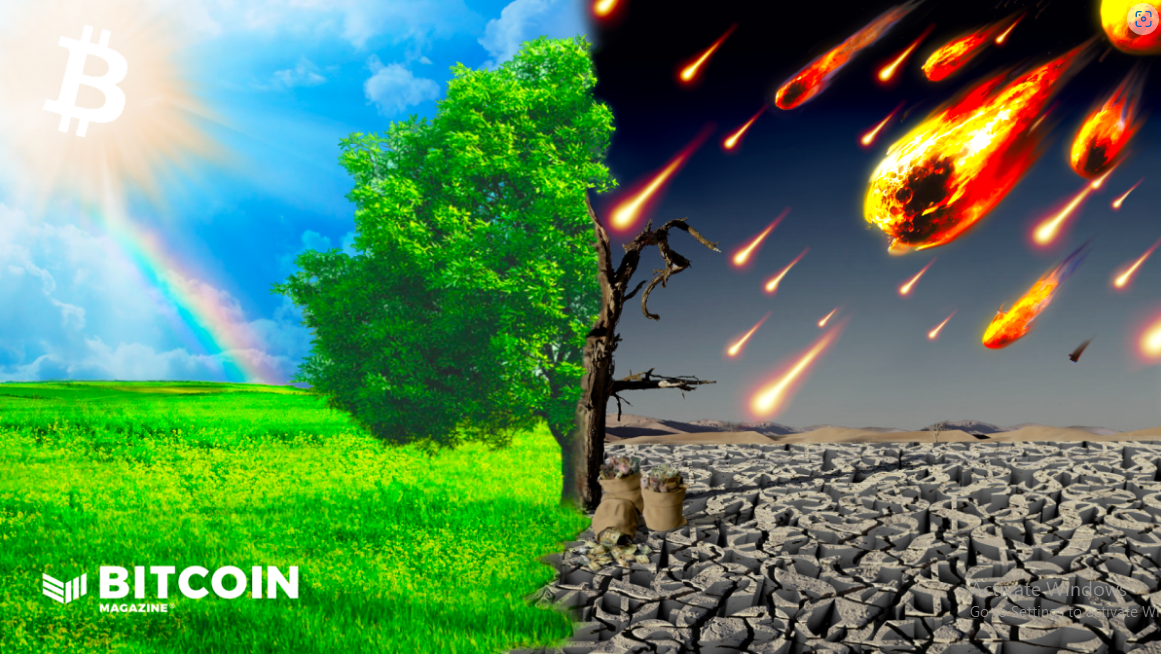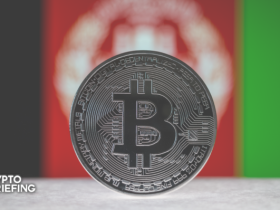The passage that follows was taken from a recent issue of Bitcoin Magazine Pro, which is the premium markets weekly published by Bitcoin Magazine. Subscribe right now to get these insights and other on-chain bitcoin market research delivered directly to your email, and you’ll become one of the first to receive them.
This essay is the first in a two-part series that will be published by Bitcoin Magazine Pro on the topic of the transforming world order, its effects on the economy of the entire world, and the prospects for the continued existence of central bank financial markets. In order to draw a conclusion, we will continue by discussing the potential role that bitcoin will play in the future into which we are moving.
These thoughts are a continuation of what Zoltan Pozsar and Luke Gromen have discussed in their works and ideas.
Part One:
There is war all throughout the world. This may sound like an exaggeration at first, but it is becoming more and more evident that the globe is currently in the middle of an economic war that has the potential to become “hot.”
Before we go into the nitty-gritty details of worldwide geopolitics, let’s take a step back and examine why it’s even worthwhile for industry participants like us to spend the time to understand it. As a businessman (and, more generally speaking, as a global citizen in general), one of the most essential things you should realize is that the preceding three decades were a complete outlier in the context of the entire history of the world.
As a result of the dissolution of the Soviet Union, there was an unprecedented level of economic activity on a worldwide scale. At the same time, the United States played the role of mediator by sending its navy to patrol trade routes. This played a role in what many now refer to as The Great Moderation because of its effects.
The term “The Great Moderation” can be used in a general sense as a synonym for globalization on a scale that has never been seen before. Particularly, the disinflationary environment that prevailed throughout the preceding three decades made it possible for real growth to continue and for the value of financial assets in the United States to skyrocket on the rear ends of interest rate legislation and money printing programs that appeared to have no end in sight after the Great Financial Crisis.
Sovereign bonds, which are essentially claims on future dollars and come with an attached interest rate, made it possible for countries to keep their surplus economic resources. This system was beneficial to sovereign shareholders so long as dollars, and then treasuries, kept their disposable income in real terms for as long as the was in place.
Following Russia’s invasion of Ukraine in February, G7 nations unanimously agreed to place a freeze on all assets held by the Russian Central Bank. Keep in mind that the definition of sovereign debt is nothing more than a guarantee of future payment from another nation; it is an obligation on the part of your counterparty.
This action established a very clear precedent for further actions. The following was included in our monthly report for the month of February.
“Your foreign exchange reserves might not be yours if you make a bad step,” was the message that was effectively conveyed to all sovereign states by this action, with particular emphasis on China.
It is obvious to anyone who is listening carefully that trade wars are beginning to increase, and history has taught us that disagreement are rarely anything other than expansionary. Although it is not an interesting task to speculate on the possibility that a hot war will break out, it is clear to those who are paying attention that political uncertainty are trying to continue to rise. Not only because governments choose to implement trade protection policies, but also because of the procurement disproportion that arises when a huge amount of industry is directed into military preparations.
Indirect Repercussions
The following post, which will function as part two of this introduction, will delve into the knock-on consequences of the power crisis in Europe, escalating tensions in the region everywhere, bubbling global debt markets, and the possible future role for bitcoin in a world that is deglobalizing.
Following Jerome Powell’s speech at Jackson Hole, where central bankers from around the world, academics, significant industrial thinkers, and administrators will explore and address “Conditions at different Restrictions on the Economy and Policy,” the announcement will take place.











 Bitcoin
Bitcoin  Ethereum
Ethereum  XRP
XRP  Tether
Tether  Solana
Solana  Dogecoin
Dogecoin  USDC
USDC  Cardano
Cardano  Lido Staked Ether
Lido Staked Ether  TRON
TRON  Chainlink
Chainlink  Avalanche
Avalanche  Sui
Sui  Wrapped stETH
Wrapped stETH  Wrapped Bitcoin
Wrapped Bitcoin  Stellar
Stellar  Toncoin
Toncoin  Hedera
Hedera  Shiba Inu
Shiba Inu  Polkadot
Polkadot  WETH
WETH  LEO Token
LEO Token  Bitcoin Cash
Bitcoin Cash  Litecoin
Litecoin  Official Trump
Official Trump  Hyperliquid
Hyperliquid  Bitget Token
Bitget Token  Uniswap
Uniswap  Pepe
Pepe  Wrapped eETH
Wrapped eETH  USDS
USDS  NEAR Protocol
NEAR Protocol  Ethena USDe
Ethena USDe  Aave
Aave  Aptos
Aptos  Internet Computer
Internet Computer  Ondo
Ondo  WhiteBIT Coin
WhiteBIT Coin  Monero
Monero  Ethereum Classic
Ethereum Classic  Cronos
Cronos  POL (ex-MATIC)
POL (ex-MATIC)  Mantle
Mantle  Render
Render  Dai
Dai  Bittensor
Bittensor  Algorand
Algorand 
Leave a Reply